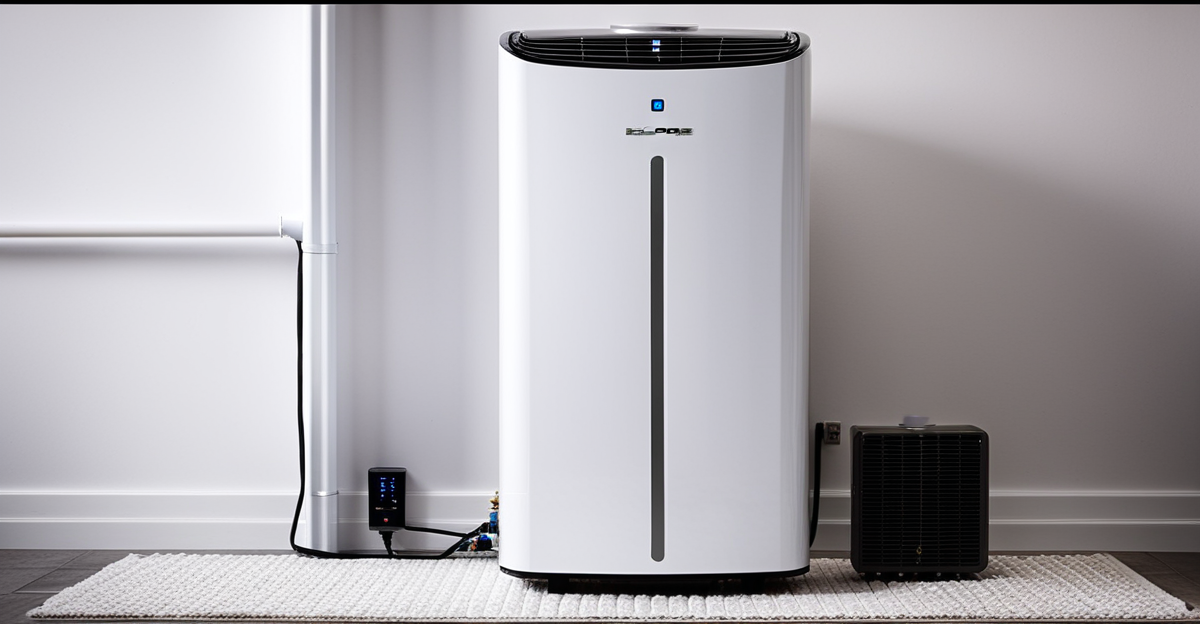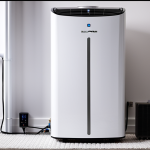Heat pump water heaters offer a smarter way to heat water by transferring heat from the air, delivering up to four times more efficiency than traditional models. While upfront costs are higher, their long-term savings and reduced environmental impact make them an attractive choice. Understanding how they work, installation needs, and potential benefits helps homeowners make an informed decision about adopting this energy-efficient technology.
Understanding Heat Pump Water Heaters: Core Functions, Benefits, and Efficiency Compared to Traditional Systems
You can find further technical details and solutions on this page: https://atlantic-comfort.ae/.
Topic to read : Comprehensive 2023 strategy for securing uk grants for rainwater harvesting: your definitive blueprint
Heat pump water heaters operate by extracting heat from the surrounding air and transferring it to water, rather than generating heat directly. This technology delivers two to four times greater energy efficiency compared to traditional electric or gas water heaters, using electricity primarily to move heat instead of creating it.
With operational efficiency often exceeding 300%, these systems help households substantially lower their energy consumption and reduce ongoing utility bills despite often higher initial purchase costs. Over the long term, the significant drop in electricity usage balances out the upfront investment, making heat pump water heaters a sustainable, cost-saving option.
Also to read : Discover funding opportunities for mental health initiatives in uk schools: the essential guide
A key advantage is their environmental impact: shifting from fossil fuels to electricity slashes carbon emissions, especially when paired with renewable energy sources like solar panels. Additionally, with minimal required maintenance, heat pump systems offer impressive durability—often lasting 12 to 15 years—outperforming many conventional alternatives.
Investment, Installation, and Practical Considerations for Heat Pump Water Heaters
Space requirements are fundamental in heat pump water heater installation guidelines—units generally need at least 28.3 cubic metres of ambient air, and optimal performance is secured in warmer, unconditioned spaces such as utility areas. Following professional installation requirements ensures the system’s integration meets safety codes and manufacturer specifications, particularly important as DIY installation considerations are limited by the system’s technical complexity.
The installation cost of heat pump water heater units in the UK averages £5,750–£8,300, varying by capacity, regional labour rates, and specific site characteristics. Professional installation requirements often accelerate the process, typically requiring one to three days. While the purchase price is higher compared to conventional heaters, the typical payback period for heat pump water heaters ranges from 5–10 years, buoyed by energy-efficient water heating that translates into noticeable utility bill reductions.
Routine cleaning of air filters and periodic checks by a professional represent the main heat pump water heater maintenance tips—tasks that extend the system’s lifespan, which often reaches 15 years, outpacing standard electric or gas water heaters. Noise levels of heat pump water heaters remain low, generally comparable to a modern refrigerator, making them suitable for residential installations.
Incentives, Compatibility, and Choosing the Optimal Solution for Home or Business
Heat pump water heater rebates and incentives are currently limited in many regions, especially for those systems providing only domestic hot water. For instance, while existing initiatives such as the UK’s Boiler Upgrade Scheme do not support these units, upcoming policies like ECO4 may expand eligibility for heat pump water heater rebates and incentives, particularly in social housing. Staying informed about new regulations remains essential for maximizing financial support.
Heat pump water heater compatibility with existing plumbing is a key factor for both residential and commercial installations. Most units—whether for homes or businesses—work with standard plumbing, but each property should be carefully evaluated. Residential heat pump water heater options are generally available as integrated tanks or retrofits, allowing diverse placements based on household needs. In commercial environments, commercial heat pump water heating solutions require greater capacity and may demand professional input for plumbing system adaptations.
Integrating heat pump water heaters with solar panels has proven feasible and popular in energy-conscious settings. Many modern systems are designed for seamless connection with solar technology, optimizing renewable energy uptake and cutting energy bills. User experiences and heat pump water heater user reviews consistently highlight the benefits of linking these systems to solar PV arrays.
Selecting the right unit for your needs should be guided by budget, installation requirements, typical usage, and trusted heat pump water heater user reviews. Consider energy efficiency ratings, compatibility with existing plumbing, and potential for integration with solar. Owners frequently recommend consulting qualified installers to ensure the chosen unit aligns with both practical demands and long-term sustainability goals.






